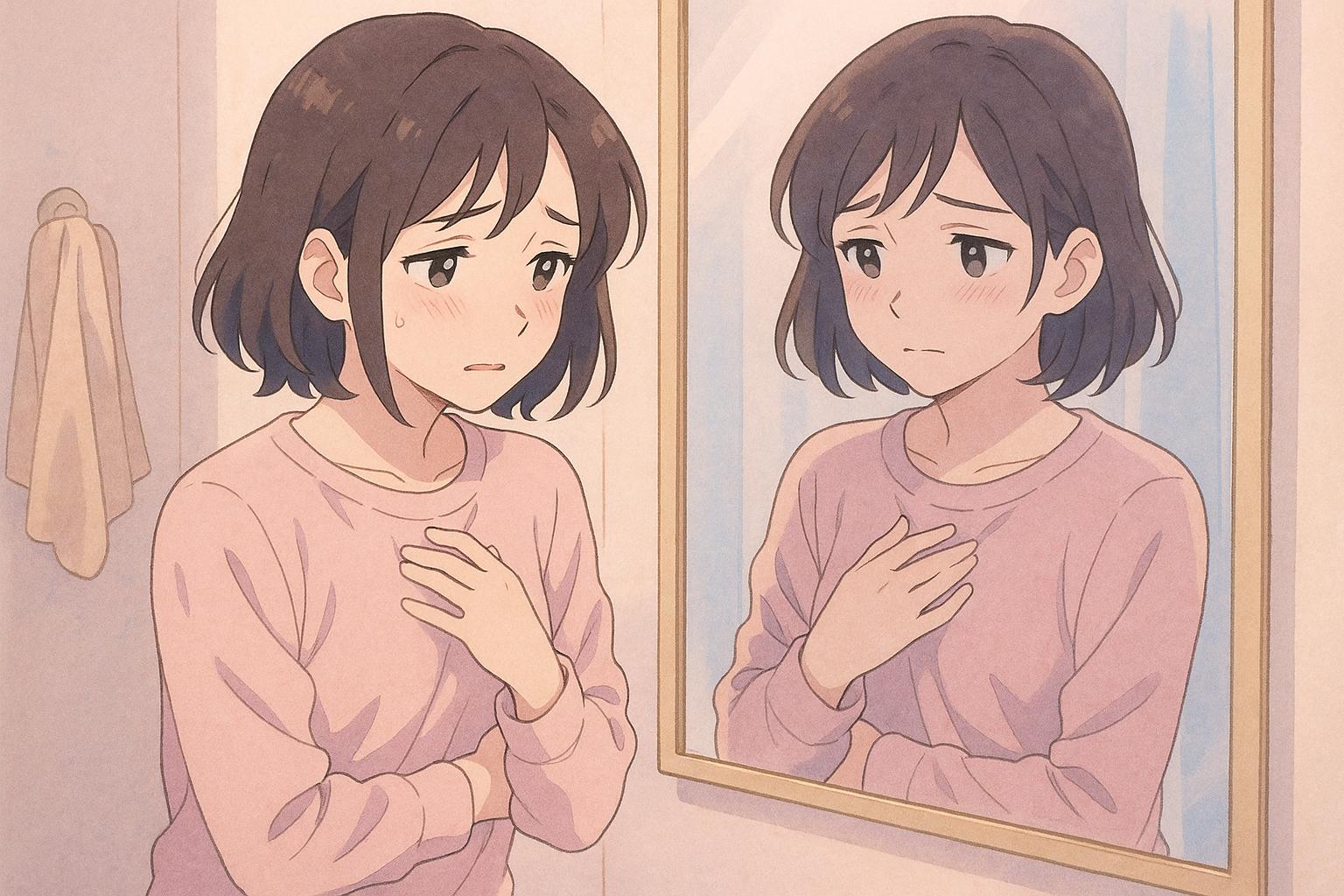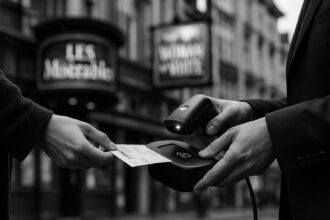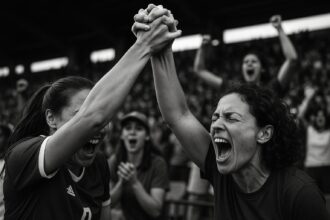Channel 4’s controversial reality show Virgin Island challenges participants with naked self-acceptance exercises that reveal varied emotional responses and raise questions about the exploitation of intimacy in television.
The reality show Virgin Island continues to stir debate with its provocative premise, which gathers twelve adults who have never had sexual experiences for a two-week retreat in Croatia. The participants, guided by sex therapists and ‘sex surrogates’, explore issues of intimacy and self-acceptance, culminating in bold challenges that push their boundaries. Recently, the cast was tasked with stripping down in front of mirrors, an exercise designed to foster self-love and body positivity. Reactions varied, with some participants expressing empowerment while others, like Louise, found the experience overwhelmingly emotional, leading to tears and expressions of self-doubt.
This stark contrast among the cast highlights the complex emotional landscape surrounding vulnerability and body confidence. While many participants embraced the challenge, with Jason boldly affirming “this is my body” in front of his peers, others struggled to confront their insecurities. After initially retreating from the task, Louise reflected on her feelings, stating, “I hate the way I look. I feel anxious.” An expert advised her that overcoming fears was a vital step in reclaiming her life, encouraging her to rejoin the group, demonstrating the emotional risks and growth opportunities inherent in the show’s approach.
In addition to personal revelations, the episode featured discussions on anatomy, as the therapists modelled physical intimacy for the cast. This aspect reinforces the show’s aim to demystify sexual relationships further. Such methodologies, while explorative, have drawn criticism and raised ethical questions. Critics argue that framing virginity as something to be ‘lost’ can reduce complex human experiences to mere spectacle, potentially perpetuating harmful narratives about intimacy and relationships.
The ethical implications of Virgin Island have been the subject of intense scrutiny. Some observers suggest the show’s framing may exploit participants’ vulnerabilities for entertainment, echoing concerns raised by various commentators who caution against trivialising intimate experiences. Questions also linger regarding the authenticity of the participants’ virginity statuses and the psychological impact of being filmed during such a personal journey. Critics assert that reality television risks oversimplifying deep emotional issues, potentially undermining the serious discussions around intimacy it attempts to promote.
Recruitment for the show has proven challenging, with reports indicating a slow response from potential participants, prompting questions about its societal appeal and the sincerity of its mission. This scarcity underscores the broader implications of casting in reality television, particularly in narratives that delve into sensitive topics like sexuality.
As Virgin Island progresses, its blend of therapeutic practices and risqué challenges continues to engage audiences while igniting discussions about the ethics of reality television and the portrayal of intimacy. With both supporters and detractors voicing strong opinions, the show’s impact on societal views of relationships and personal exploration remains to be fully realised as the series unfolds.
Reference Map
- Paragraph 1: [1], [2]
- Paragraph 2: [1]
- Paragraph 3: [3], [7]
- Paragraph 4: [4], [5], [6]
- Paragraph 5: [6]
- Paragraph 6: [3], [4], [5]
Source: Noah Wire Services
- https://www.dailymail.co.uk/tv/article-14733297/Virgin-Island-cast-strip-naked-bold-scenes.html?ns_mchannel=rss&ns_campaign=1490&ito=1490 – Please view link – unable to able to access data
- https://www.standard.co.uk/culture/tvfilm/virgin-island-channel-4-cast-release-date-b1226859.html – Channel 4’s ‘Virgin Island’ is a reality show featuring 12 virgins participating in a two-week retreat to address intimacy issues. The program includes unconventional therapies like sharing sexual fantasies and exploring their ‘inner animal.’ Therapists use touch and physical intimacy to help participants overcome challenges in forming intimate relationships. The show aims to help participants reconnect with their bodies and embrace pleasure.
- https://www.gq-magazine.co.uk/article/virgin-island-hulu – British GQ critiques Channel 4’s ‘Virgin Island,’ a reality show focusing on adult virgins seeking to lose their virginity. The article discusses the ethical concerns of framing virginity as a ‘prize’ and the potential reinforcement of reductive ideas about sex and relationships. It also highlights the challenges in finding participants and the implications of such a show on societal perceptions of intimacy.
- https://www.theguardian.com/tv-and-radio/article/2024/may/23/virgin-island-dating-show-hulu-tv – The Guardian discusses Channel 4’s ‘Virgin Island,’ a reality show featuring virgins on a tropical island exploring intimacy. The article raises questions about the authenticity of participants’ virginity and the ethical considerations of such a show. It also mentions the challenges in recruiting participants and the potential impact on societal views of intimacy and relationships.
- https://www.mediamole.co.uk/entertainment/tv/news/channel-4-gives-go-ahead-to-reality-show-virgin-island_558397.html – Media Mole reports that Channel 4 has approved a new reality show, ‘Virgin Island,’ aiming to help 12 virgins experience sex for the first time. The six-part series will follow participants as they receive sex coaching from experts Celeste Hirschman and Danielle Harel. The show has faced criticism for its premise and ethical considerations.
- https://www.mediamole.co.uk/entertainment/tv/news/channel-4-receives-no-applications-for-virgin-sex-show_534385.html – Media Mole reports that Channel 4’s ‘Virgin Island’ reality show has struggled to find participants, with no applications received over six months. The show aims to feature virgins taking steps toward intimacy, but the lack of interest raises questions about its appeal and ethical implications.
- https://www.christian.org.uk/news/channel-4s-virgin-island-pimping-out-vulnerable-people-for-ratings/ – The Christian Institute criticizes Channel 4’s ‘Virgin Island’ for exploiting vulnerable individuals for ratings. The show invites strangers to a tropical island to lose their virginity, raising ethical concerns about the treatment of participants and the message it sends about intimacy and relationships.
Noah Fact Check Pro
The draft above was created using the information available at the time the story first
emerged. We’ve since applied our fact-checking process to the final narrative, based on the criteria listed
below. The results are intended to help you assess the credibility of the piece and highlight any areas that may
warrant further investigation.
Freshness check
Score:
8
Notes:
The narrative discusses recent events and does not appear to be a recycled version of older news. However, specific details about the show’s production timeline and participant recruitment are not detailed, which might suggest some aspects are not entirely new.
Quotes check
Score:
6
Notes:
The quotes provided, such as Jason’s affirmation and Louise’s reflection, do not have an earlier known online source. This could indicate they are original, but without further verification, it remains speculative.
Source reliability
Score:
7
Notes:
The narrative originates from the Daily Mail, which is a well-known publication but may vary in reliability depending on the subject matter. The inclusion of diverse perspectives adds to its credibility.
Plausability check
Score:
8
Notes:
Claims about the show’s provocative content and ethical implications are plausible given the context of reality TV shows. However, the authenticity of participants’ virginity statuses and the psychological impact on them cannot be fully verified without more data.
Overall assessment
Verdict (FAIL, OPEN, PASS): OPEN
Confidence (LOW, MEDIUM, HIGH): MEDIUM
Summary:
The narrative discusses recent and plausible events, but some claims about participant experiences and the show’s impact lack concrete evidence. The source is generally reliable, but the quotes’ originality is unverified.













